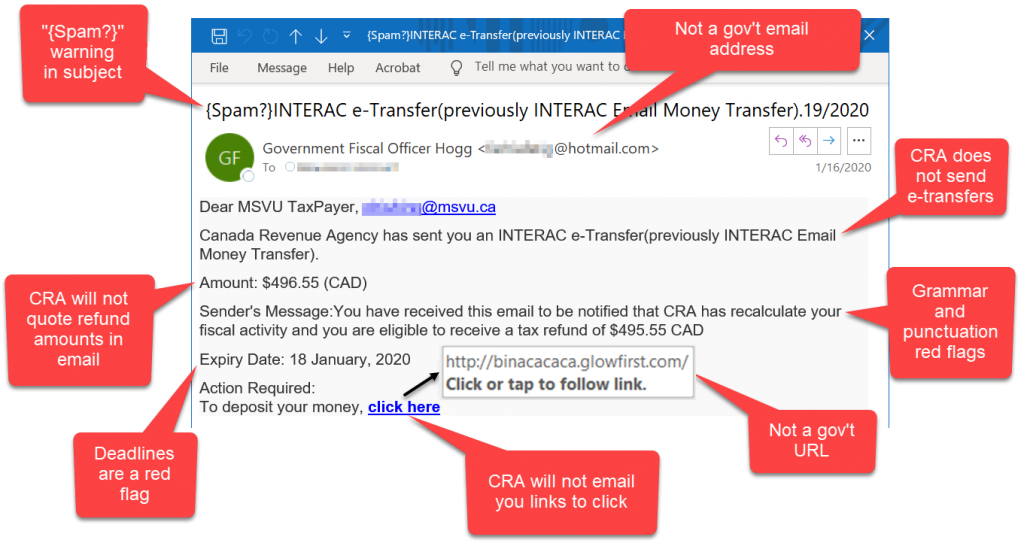Tax, CRA, and Service Canada Scams
Especially during tax season, scammers posing as Canada Revenue Agency (CRA) or Service Canada agents may try to steal your personal information or money. They do this using phone calls, text messages, emails, web forms, and even snail-mail letters. The scammers could ask for your Social Insurance Number (SIN), birth date, name, address, and banking details. They could ask for payment by gift card, Interac e-transfer, credit card, gift card, or even bitcoin. They might threaten you with jail, or they may offer you an unexpected tax refund.

